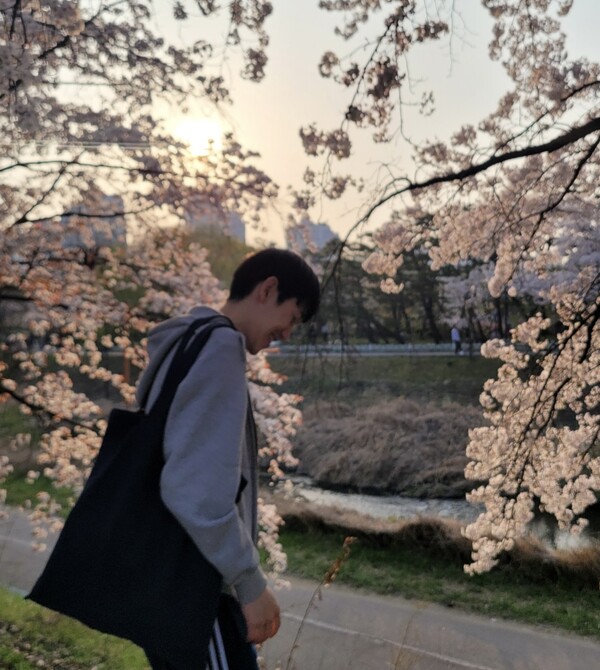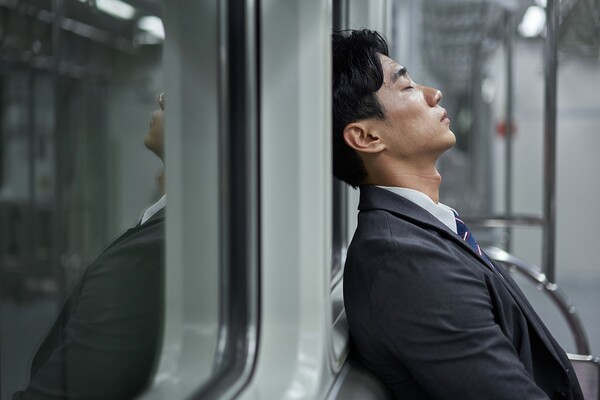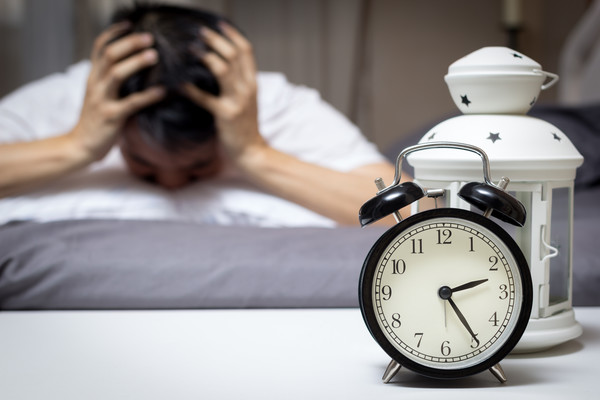As a young man suffocating under the weight of Korean academic expectations to secure a spot at a top university, Lee Kyu-yong found himself trapped in a seemingly endless limbo. He took the Korean college entrance exam four times over four years, each attempt fueled by hopes of gaining admission to his dream school, Yonsei University.
"Every time I sat for the exam, I thought I could do it," he recalled. Yet, each time, he fell short.

Admitted to Sangmyung University instead, Lee hoped for a new beginning, only to find himself ensnared in another dead end. Lee sought help by undergoing counseling for depression and personality assessments, including an Enneagram test. However, the relief was short-lived. "It didn’t touch the core of my problems," he said, reflecting on the brief, empty sessions.
“Korea needs mental health services tailored to the wide spectrum of issues individuals face,” said Paik Jong-woo, a professor of psychiatry at Kyung Hee University. Some needed extensive counseling; others, shorter sessions coupled with medication, he said. The problem was that too many fell through the cracks. “The current system, despite its advancements, doesn’t seem to bridge the gap between patient needs and actual care."
Lee didn’t go back for more counseling. Instead, he transferred schools, hoping that a new environment might offer some salvation.
Now, at 26, Lee is a third-year student majoring in information and data science at Dankook University, but his battle with depression still looms large. His dream of attending Yonsei never materialized, and the sting of that failure has followed him into adulthood.
“Even now, I feel inadequate,” Lee confessed. “There’s this lingering sense of dissatisfaction and missed opportunities.” His days blend into one another, a monotonous loop: wake up, go to class, and return home. His social life had withered away, his world shrinking to the four walls of his family home.
Lee never spoke of his struggles, but his actions said enough. Coming home right after class, avoiding friends—it was all too telling. “I don't have to say it for them to know,” he said. His parents occasionally probe, asking if he’s feeling down or depressed, but Lee dodges the questions. “If their suspicions were confirmed," he said, "I think they’d be devastated. I can’t bring myself to say anything.”
Lee’s silence about his struggles mirrors a national issue. Last year, a global Ipsos survey on World Mental Health Day revealed that Korea ranked last in how often people think about mental health. Yet Korea also had the highest suicide rate among OECD countries. The contradiction was staggering—mental health was an urgent issue, but society remained indifferent.
“This shows just how far Korea is from becoming a place where discussing mental health isn’t seen as a taboo,” said Professor Paik.
According to Paik, depression distorts one’s outlook, often leading individuals to view the future negatively, feel hopeless, and foster a belief that no one can help them. “The deeper the depression, the harder it becomes to reach out,” he said.
“It’s not like cancer,” Paik explained. Cancer comes with a clear path: diagnosis, treatment, and recovery. “But with depression, the nature of the illness can feel like a black hole where no matter what you do, nothing changes.” This makes seeking help “much harder than with other illnesses,” he said.
Adding stigma to an already despairing individual exacerbates the problem. “A depressed patient might think that going to a psychiatrist will burden others or bring shame to their family, making the decision to seek help even more daunting,” Paik added.
For Lee, the fear of stigma was always there. Outside his family, he dreaded what others might think if they knew he was seeing a psychiatrist.
His self-perceived “failures” have driven him into a deeper solitude. His attempts to break free—joining clubs, throwing himself into physical activities—have been in vain. Lee said he is currently contemplating transferring again, still chasing the hope that somewhere, somehow, things might change.

Lim's hidden battle with ADHD and depression
Lim, who requested anonymity and preferred not to disclose his first name, revealed in an interview with Korea Biomedical Review on Monday that he had also been running from a persistent and elusive force for years — a force that led him to cross boundaries in conversations, make small but frequent errors, and lose control of his actions. Yet, he could never quite pinpoint it. He had always dismissed it as mere emotional avoidance.
“Everyone has bad days, right?” Lim said, trying to rationalize his condition. “A bit of numbness here, some sleepless nights there.” That’s life, he thought, except for him, the numbness never lifted. It thickened, suffocating him like a weight he couldn’t shake, no matter how fast he ran—literally.
“I kept moving, constantly,” he recounted. Dawn hikes, midday gym sessions, evening yoga—these routines provided temporary relief, but the heaviness lingered. Symptoms like disrupted sleep patterns were brushed off as a need for more or less exercise, rather than addressing an underlying mental health crisis.
Professor Paik identified two major obstacles in mental health: ignorance and hesitation. "Not knowing" means people might experience depression, anxiety, or panic disorders without realizing these symptoms are linked to mental health issues.
One of the most common misconceptions, Paik said, is insomnia. “People often chalk it up to simple trouble sleeping or blame physical ailments—headaches, fatigue, or digestive problems—and seek help from internal medicine doctors instead.”
A friend of Lim's had been throwing the term ADHD around—said they were taking medication for it. Lim had scoffed at the idea. ADHD? That didn’t fit him. He wasn’t a hyperactive child; he was a college student, trapped in a depressive cycle from low self-esteem and constant negative thoughts.
But the cracks started to show. Anger surged when words slipped from his grasp during conversations. He’d overstep, say things he didn’t mean trying to connect, but only push people away. Misunderstandings piled up, and every attempt to fix the damage only seemed to make it worse. The inability to maintain boundaries and a constant fear of how others perceived him wore down his self-esteem. At work, his lack of focus led to mistakes, inviting harsh comments from coworkers.
Despite mounting evidence, Lim stubbornly resisted the possibility of ADHD. "In Korea, ADHD didn’t seem like a real mental issue, and I didn’t want to accept it,” he said, recalling his years of denial. “I was convinced it was just the depression exacerbating everything. I refused to consider ADHD as a real possibility.”
For three long years, Lim pushed himself harder, devouring self-help books, and diving deeper into fitness routines. Yet, nothing ever quite aligned; there was always something amiss.
Professor Paik emphasized that while the barrier of "not knowing" can be addressed through increased awareness and education, the barrier of "knowing but not acting" arises when individuals recognize their mental health issues but avoid seeking help due to stigma and discrimination.
The diagnosis Lim received in May 2022 landed like a blow: ADHD. “I had a feeling it was true,” Lim said, “but hearing it officially was something I dreaded.”
Currently unemployed and having only held part-time jobs due to his condition, Lim struggles to make ends meet. He started a blog, earning between 50,000 ($378) and 150,000 won a month, barely scraping by on this unstable income.
During a youth internship in May this year he held for three months, he kept his ADHD a secret, fearful of backlash. “I didn’t tell anyone because I’ve seen people lose jobs over this,” Lim said. He had witnessed firsthand how individuals with similar conditions faced severe discrimination, ostracism, and job insecurity—especially in small businesses with scant labor protections.
“In Korea, disclosing mental health issues in the workplace can often lead to feelings of guilt and the desire to hide such issues,” said Professor Paik. But in America, the narrative is different.

U.S. vs Korean mental health stigma
Michelle Kim, a 28-year-old Korean software engineer at Temple University, battles her anxiety in Pennsylvania. When the weight of her condition becomes unbearable, she turns to Buspar (buspirone) to alleviate the intense symptoms, which sometimes leave her needing to lie down or hunch forward to ease the crushing tension in her chest and shoulders.
Yet, for Kim, seeking help was never something to hide. “In America,” she said, “mental health is widely accepted and discussed openly, not seen as a weakness." A concerned coworker first suggested she talk to her doctor, leading her to start medication.
When Kim opened up to others about her struggles, she was met with empathy, not judgment. Friends and colleagues consoled her, and shared their own stories and support, making her feel less isolated. "It's not a taboo subject here. Many people face similar struggles, so I never felt alone in my journey," she said.
Kim highlighted the stark difference between the U.S. and Korea when it comes to mental health. In Korea, she said, people often seem unaware they even need help. From what she sees in the media, Kim believes Koreans are more inclined to "fight through" their problems rather than seek support from friends, family, or professionals.
Despite Korea’s reputation for having the highest suicide rate among OECD countries—a statistic that has held steady for over two decades—the reasons behind it remain painfully clear. According to Professor Paik, a major factor is that those overwhelmed by stress and despair often struggle to ask for help. "This inability to reach out is a significant contributor to the high suicide rate," he warned.
Global research backs this up, showing that raising awareness and understanding of mental health is effective up to high school. Educating teens about depression, anxiety, suicide risks, and seeking help has proven crucial. For adults, Paik emphasizes that engaging with those who have battled mental health issues can be transformative. “Hearing real stories of depression, panic disorders, or suicide attempts—especially through media or social platforms—can break down stigma,” he said.
Yet, the search for the right therapist can be grueling. “Even after several attempts, a patient and psychiatrist might not click,” Paik said. "Therapy is deeply personal, and finding the right fit can take time. If one approach fails, it doesn’t mean therapy is doomed. Exploring different therapists and methods is essential.”
Kim emphasized the importance for Koreans to find the courage to seek help. "It’s for yourself, for your health," she said. "That should always be the top priority. And know—it’s okay to ask for help."
Related articles
- Lawmaker urges license revocation for mentally ill and addicted doctors still practicing despite audit findings
- Health ministry to survey mental hospitals’ physical restraints on patients
- [Column] Innovation in Korea stalls: why younger generations are turning to YouTube for instant success
- Who will be responsible for accidents if physical restraints on mental health patients are banned?
- 1st pediatric insomnia drug launched in Korea
- Suicide counseling surges in Korea but treatment referrals plummet
- Migrant workers in Korea face isolation and rising suicide rates
- The greater the grit, the better the sleep: study
- Janssen Korea’s Concerta supply strained amid soaring ADHD prescriptions and tighter controls

